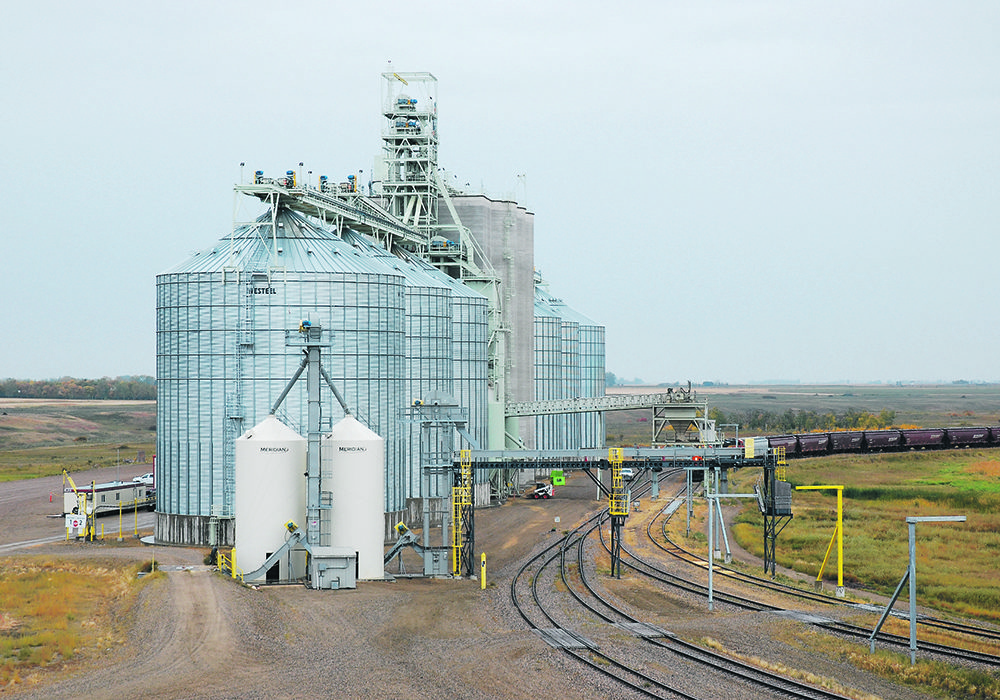Canola crusher planned for southern Saskatchewan

Another company has announced plans to build a new canola processing facility in Saskatchewan.
Ceres Global Ag Corp. was expected to announce plans on May 25 to construct a $385 million canola crushing facility at Northgate, Sask., about 250 kilometres southeast of Regina.
The proposed state-of-the-art facility will have the capacity to process between 1.1 million and 1.2 million tonnes of canola annually and produce about 400,000 tonnes of canola oil per year.
Plant design would allow for crush capacity to be expanded by about 30 percent, if needed.
Oil produced at the facility would be marketed primarily to buyers in the U.S. renewable fuels industry but the facility would also have the ability to produce food-grade canola oil for human consumption, Ceres officials said in a news release.
Ceres already owns a high-throughput grain elevator and rail transloading facility at Northgate, just a few hundred metres away from the Canada-U.S. border.
Grain and other commodities collected at Northgate are typically shipped south into the U.S. on the BNSF rail network.
Robert Day, president and chief executive officer at Ceres, said having direct access to the BNSF network provides Ceres with a significant freight advantage over competing canola crush plants in Western Canada.
The BNSF network offers direct access to major canola oil markets in the U.S. It also offers access to destinations in the heart of American dairy country, where large volumes of Canadian canola meal could be used as feed.
“Northgate has some pretty significant freight cost advantages…,” Day said in a May 21 interview with The Western Producer.
“BNSF can access key demand destinations (for oil and meal), whereas other Canadian crush plants would typically have to go to export by (ocean) vessel or, if they’re going to go to demand in the United States, their product is going to start on a Canadian railroad and then go onto a U.S. railroad. So the costs are simply higher.”
Day also pointed to other logistical advantages at Ceres, including the proposed plant’s proximity to canola growers in southeastern Saskatchewan, its distance from competing crush facilities in Canada and the United States, and the company’s ability to load 100-car unit trains by using Northgate’s modern loop track loading system.
Ceres’ closest competing canola crushers would be located in Regina and in Velva, North Dakota, about 170 kilometres away.
“We have been analyzing canola crush at Northgate for several years and our location makes perfect sense,” Day said.
“Much of the infrastructure is already in place, including a 2.7 million bushel shuttle loading grain elevator with two 120-car loop tracks.
“While there are multiple drivers contributing to (canola oil) demand, the most important from a long-term standpoint is the increasing use of vegetable oils as feedstock for the production of renewable diesel,” he added.
Day said the proposed crush facility is expected to be operational by summer 2024 and will result in the creation of more than 50 full-time jobs in Saskatchewan.
Environmental assessment work is underway and the company expects approvals to be in place before the end of the year.
That would allow for plant construction to begin in early 2022.
Funding for the $385 million project has yet to be finalized, but Day said the company expects financing details to be in place within the next few months.
The announcement by Ceres is the latest in a recent wave of investments that will see Canada’s canola crushing capacity grow by roughly 50 percent over the next three years.
Earlier this year, Richardson announced plans to double crushing capacity at its plant in Yorkton, Sask., to 2.2 million tonnes annually.
A few weeks later, Cargill announced plans to build a million-tonne-a-year facility in Regina.
And in late April, Viterra joined the fray with plans to build the world’s largest canola crush facility in Regina. The Viterra plant will be capable of processing 2.5 million tonnes of seed annually.
With Ceres joining the party, nearly 5.5 million tonnes of annual crushing capacity will be coming online in Saskatchewan by 2024, pushing Canada’s total crush capacity to nearly 16.5 million tonnes annually.
Despite that rapid expansion, Day said Ceres is confident that the economics of canola crushing will remain favourable, given steady demand for vegetable oil and potential use in the renewable fuels sector.
“The key (factor) when making a decision like this is ensuring that you have access to the canola seed,” Day said.
“If you have access to canola seed at a competitive cost, we believe the margins are going to be there for the foreseeable future.”
Source: producer.com

